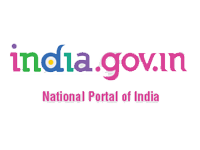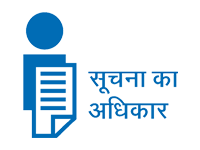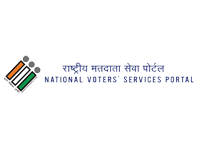1. INTRODUCTION
The ICSSR provides grants to academicians and researchers to organise seminars and conferences in India as a prominent strategy to advance research in various social science disciplines. Seminars enable researchers, academicians, policy-makers, industry partners and other stakeholders with an opportunity to exchange research findings as well as domain-specific ideas. Seminars and conferences also generate significant academic output and research literature on contemporary issues while anticipating the challenges of the future.
ICSSR considers three separate categories of seminar proposals for funding, namely, National, International and Collaborative seminars. Through its seminar programmes, the ICSSR encourages evidence-based and solution-oriented research that addresses the concerns and questions on policy-relevant issues. Seminars and conferences in thrust areas identified by ICSSR help in developing research deliverables, which may be translatable as baseline policies or policy recommendations.
Though the Council itself organises a few seminars, most of its assistance is responsive in nature, with educational institutions receiving partial financial support to organize national, international and collaborative seminars in all social science disciplines.
1.2 CATEGORIES
Seminar proposals may fall under the following three categories:
1.2.1 National Seminar: The proposals should be well-conceived on themes of significant social science concerns, inviting broad, interdisciplinary and national-level participation. National seminars should involve the participation of scholars from within India. Preference will be given to the proposals falling in the priority areas of the ICSSR on themes having policy implications.
1.2.2 International Seminar: The proposal should be well-planned and must justify the need for an international conference on research priorities and issues with an international perspective. It should involve the confirmed participation of a significant number of foreign scholars (minimum 5) as resource persons and/or paper contributors.
1.2.3 Collaborative Seminar: ICSSR also considers proposals that proactively seek collaborations with government departments or reputed research organisations with a social science research orientation for joint seminars on policy-oriented and socially relevant issues.
2. ELIGIBILITY
2.1 Seminar grants shall be given to the organizing institutions that may be ICSSR Research Institutes, ICSSR Recognised Institutes, Government Institutes engaged in research work of strategic importance, Institutes of National Importance as defined by the Ministry of Education (MoE), UGC Recognized Indian Universities/Deemed Universities/Institutions/Colleges under (2) F / 12(B) etc. and Social Science Associations that fulfil the conditions such as (a) proper registration, (b) audited statement of accounts for last three years, and (c) life membership of minimum 100.
2.2 Regular faculty members of the institutions mentioned in para 2.1, having a Ph.D. degree, can apply as the Convener/Co-convener of the seminar/conference. Ph.D/PDF scholars are not eligible to apply as Convener/Co-Convener. However, they can be permitted to be part of the organizing committee.
2.3 An individual applicant who has been given a grant to organize National/International Seminars can apply only after a gap of one financial year.
3. HOW TO APPLY
3.1 Applications are received online throughout the year. Additionally, Special Call seminars dealing with specific themes and issues as decided by the ICSSR will also be invited from time to time through an advertisement which shall be published on the ICSSR website, social media platforms of ICSSR and if required, in print media.
3.2 The applications should be submitted at least three months before the due date of the Seminar/Conference.
3.3 The applicants need to submit an online application along with the seminar proposal, annexures, and other required documents in the prescribed format, duly forwarded by the Competent Authorities of the affiliating university/college/institute. After submitting the online application, a hard copy of the same, along with all enclosures listed in 3.4, must be sent to:
The Deputy Director,
NIS Division,
Indian Council of Social Science Research,
JNU Institutional Area,
Aruna Asaf Ali Marg, New Delhi 110067
3.4 ANNEXURE/CHECKLISTS (IN THE GIVEN ORDER)
- Brief CV of the Seminar Convener (2-3 pages) as Annexure - I
- Abstract of Seminar Proposal (about 300 words) as Annexure - II
- Concept Note with Sub-themes (up to 1000 words) as Annexure - III
- Tentative date-wise and session-wise programme including prospective national and international paper presenters and speakers with their respective affiliations as Annexure - IV
- Confirmation letters/emails from the international speakers and paper presenters (not more than 20) as Annexure - V
- Plan for coverage/publicity (200 words) as Annexure - VI
- Duly attested SC/ST/PWD certificate as Annexure - VII
- Forwarding letter from the Head of the Affiliating Institution, duly stamped and signed on the letterhead as Annexure - VIII
- Self-attested copy of the PhD Certificate - IX
3.5 Seminar proposals and the final proceedings should be either in English or Hindi.
4. PROCEDURE FOR AWARD
4.1 All applications submitted to the ICSSR will be screened by the division regarding the submission of complete documents by the applicants.
4.2 The proposals shall be evaluated by the Expert Committee, and seminar grants will be awarded on the basis of recommendations of the committee.
4.3 The recommendations of the Expert Committee are then placed before the Research Committee and its Council for its final approval.
4.4 The list of recommended proposals shall be published on the ICSSR website.
5. VALUE
5.1 National Seminar: Maximum up to Rs. 8 lakhs
5.2 International Seminar: Up to Rs.12 Lakhs
5.3 Collaborative Seminar: Rs. 5 to 10 Lakhs
5.4 The actual sanctioned amount will, however, depend on the quality of the proposal, importance of the theme, potential to generate academic discussion, seminar location and number of participants as decided by the Expert Committee.
5.5 Financial Allocation
The seminar organizers should send budget estimates under the following permissible heads:
| S.No. | Heads | Amount (in Rs.) |
|---|---|---|
| 1. | Domestic Travel | |
| 2. | International Travel (not more than 25% of the total budget) | |
| 3. | Accommodation | |
| 4. | Food Expenses | |
| 5. | Honorarium | |
| 6. | Organizational Expenses (including Stationery, Xeroxing, Secretarial Assistance, Contingency and Miscellaneous expenses) | |
| 7. | Publication (not more than 10% of the total budget) | |
| Total |
6. RELEASE OF GRANT
The grant will be released in two instalments.
Important Points
- The organizer should exhibit a clear interest that they intend to publish the proceedings of the seminar/conference in the form of a book/edited volume or papers in journals with due acknowledgement to ICSSR.
- The seminar/conference convenor will be responsible for collecting and compiling revised papers/transcription of speeches within two months of completion of the seminar/conference and sending them to ICSSR in publishable format along with group photographs and a copy of the banner and certificate.
- The academic background of the convener and paper presenters must be in conformity with the theme of the proposed seminar/conference.
- The names of the resource persons and the topics of the presentation to be made in the seminar should be clearly defined.
- The Concept Note must specify (a) the sub-themes, (b) the research questions being addressed, and (c) the possible contribution/outcome of the seminar/conference to the existing body of social science research.
- The application should highlight the impact of the seminar on society and the seminar’s contribution to policy-making in 500 words each.
- The seminar requests for financial assistance up to Rs.1 Lakh should be sent to the ICSSR Regional Centres of the respective regions.
- The applicant/institution should inform the Council about any other financial assistance received for the seminar.
- Any request for an additional grant in excess of the sanctioned budget will not be considered.
- The Council reserves the right to reject any application without assigning any reason. It is also not responsible for any postal delays/loss.
- Incomplete applications in any respect shall not be considered.
- Audited Statement of Accounts and Utilization Certificate in GFR 12 A form. In the case of central universities, an AC/UC signed by the finance officer is acceptable. For all other institutions/universities, the AC/UC should be countersigned by a chartered accountant with his/her UDIN No.
- The seminar/conference coordinator who does not submit the statement of accounts and utilization certificate in the proper format, along with the proceedings, will be debarred from applying for the grant.
- The institution should ensure that the convener of the seminar submits a detailed report within sixty days (60 days) after the Seminar/Conference.





